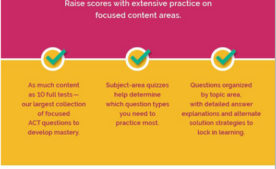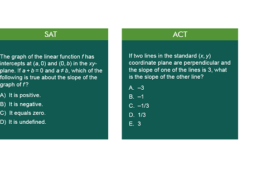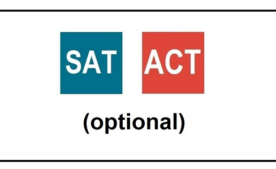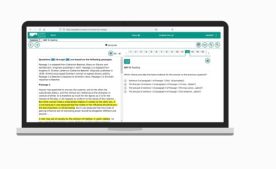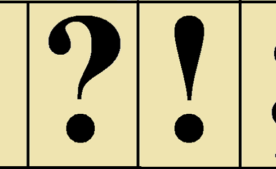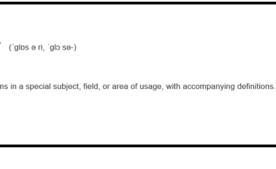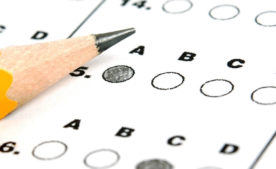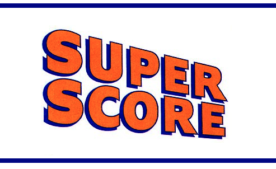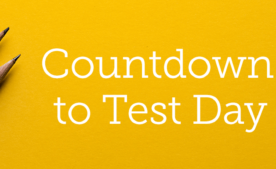When we work with families to create a testing plan that best suits their student, our first goal is to help answer the question “Which test to take?”. Both tests are accepted equally by all US colleges. While the SAT and ACT require mastery of a similar set of academic skills, they have two very different approaches to their assessments. In our experience, students tend to have a preference for one test over the other even when they score similarly on both. Hopefully, this SAT ACT comparison will help.
At a high level, the difference between the SAT versus ACT comes down to what we refer to as “power” versus “speed”, respectively. Power speaks to the complexity and difficulty of the SAT reading passages and questions on the test, whereas speed comes from the quick pacing of the ACT test given the number of questions. As the power test, SAT questions in general are a little trickier in that they require more analysis and interpretation. The reading level of the SAT passages is harder than that found on the ACT “speed” test. Most students find the ACT questions and reading passages more straightforward, but can struggle with the very fast pacing of it.
Choosing the Right Test for Your Student
You may have heard that a particular type of student is better suited for the power of the SAT and another type of student is better suited to the speed of the ACT. At the end of the day, the best way to decide whether to focus on the SAT or ACT is to have students sit down and take full-length practice tests of each.
Roughly 20-30% of students will show a significant scoring difference between the SAT and ACT, and we generally recommend pursuing the test with the higher starting baseline score. However, most often, students score equally well on both tests, so the decision of SAT or ACT in many cases comes down to a student’s gut instinct. We jokingly ask students which test they disliked the least. Which one were they more comfortable with? Which one do they think plays to their strengths? Which one would they rather prep for and think they have an easier time raising their score? Other considerations can also factor into the SAT/ACT decision including the student’s reaction to the science section on the ACT (there isn’t one on the SAT) and the overall fast paced nature of the ACT. For the SAT, we want to gauge how they performed on some of the more challenging reading passages and the no-calculator math section (ACT allows calculators on the entire test).
With the scores from the two practice tests, our Score Report analysis of the types of questions that students missed, and input from the student about which test they preferred, we can help families decide on which test to focus their test preparation. [Side note: As a complimentary service to students, we administer proctored practice SAT and ACT tests (with and without Extended Time) at our offices and satellite locations most weekends throughout the year. You’ll get a detailed Score Report that analyzes strengths and areas for improvement.]
SAT and ACT Comparison Chart
The chart below gives a side-by-side comparison of the tests’ format, length, scoring, and specific content areas covered in reading, writing, math, and science.
If you need guidance navigating this process, or have questions about our personalized, one-on-one tutoring programs, feel free to contact our Program Directors who are experts in test prep for college.
| SAT | ACT | KEY DIFFERENCES | |
|---|---|---|---|
| FORMAT AND LENGTH | -5 sections -Writing & Language; Reading; 2 Math -Total testing time: 2 hours, 10 minutes | -5 sections -English; Math; Reading; Science; Writing -Total testing time: 3 hours, 35 minutes (includes essay) | The SAT has a stronger emphasis on math, whereas the ACT has a stronger emphasis on science. Overall testing time and section lengths are similar. SAT questions generally require more critical thinking, but the SAT also provides 30–40% more time per question. |
| SCORING | -Total score: 400–1600 -Evidence-Based Reading & Writing: 200–800 -Math: 200–800 | -Composite score: 1–36 (average of 4 test scores) -English: 1–36 -Math: 1–36 -Reading: 1–36 -Science: 1–36 -Writing (not averaged into composite score): 2–12 | The ACT Composite score is the average of your four test scores, so a change in one test score may not be reflected in the Composite. The ACT Composite is divided into relatively few possible scores, so an increase of one point can represent a significant difference in abilities. The SAT Total Score is the sum of the test scores. |
| WRITING & LANGUAGE/ENGLISH | -Revise and edit a piece of writing -Standard English grammar and usage -Punctuation -Logical structure -Effective rhetoric | -Revise and edit a piece of writing -Standard English grammar and usage -Punctuation -Logical structure -Effective rhetoric | The SAT Writing & Language and ACT English Tests are similar in format and content. The SAT has more emphasis on rhetoric and typically has more complex passages, but offers about 33% more time per question than the ACT does. The SAT also includes questions relating to data graphics. |
| MATH | -Pre-algebra through basic trigonometry 12 Grid-In questions (no answer choices) -Strong emphasis on Algebra -Calculator prohibited on one section | -Pre-algebra through basic trigonometry -Extensive range of concepts tested -Formulas not provided -5 answer choices per question (rest of test has 4) | The SAT and ACT Math Tests cover similar ranges of concepts. The ACT requires a broad, basic knowledge of many concepts. The SAT requires a deep knowledge of a core set of concepts, particularly algebra. The SAT offers about 38% more time per question than the ACT does. |
| READING | -4 single passages and 1 paired passage -2 passages include diagrams/charts -2 vocabulary-in-context questions per passage -2 evidence questions per passage | -4 single or paired passages -Consistent order of subject areas: Literary Narrative and Prose Fiction, Social Sciences, Humanities, Natural Sciences | The ACT Reading Test emphasizes basic reading comprehension but challenges students with its speed. The SAT Reading Test emphasizes defining vocabulary in context, understanding the role of the author, and defending answers with textual evidence. The SAT typically contains more complex passages, but offers about 43% more time per question. |
| SCIENCE | -The SAT does not have a stand-alone Science section, but 21 science questions are included throughout the Math, Reading, and Writing & Language Tests | -40 questions distributed over 6 passages -Emphasis on charts, diagrams, etc. -Science is a reasoning test—rarely requires prior specific science knowledge | The ACT Science Test measures interpretation, analysis, evaluation, reasoning, and problem-solving skills. The test uses scientific language and reasoning, but rarely requires any specific knowledge from your academic science classes. While there are science questions throughout the SAT, there is no specific Science section. |
| EXPERIMENTAL QUESTIONS | -Some students receive a 20-minute fifth section after the Math (Calculator) section -Any question from the fifth section or corresponding earlier section may or may not be experimental -All experimental questions test one content area | -Some students receive a 20-minute section after the Science section or experimental questions blended throughout the test -All questions in the fifth section are experimental. -If experimental questions are blended throughout the test, section are extended by 5-10 minutes. | Experimental questions test the viability of questions that may appear on future tests. They do not count toward a student’s official score. On the ACT, they occur in either the fifth section or throughout the test. On the SAT, they may occur in the fifth section or corresponding earlier section. |
| ESSAY | None | -40 minutes -Evaluate three perspectives on a contemporary issue -Student opinions encouraged -Scored on 2–12 scale on each of 4 domains: Ideas & Analysis, Development & Support, Organization, Language Use & Conventions | The ACT Essay emphasizes crafting and comparing arguments. The College Board has removed the Essay section from the SAT. |






